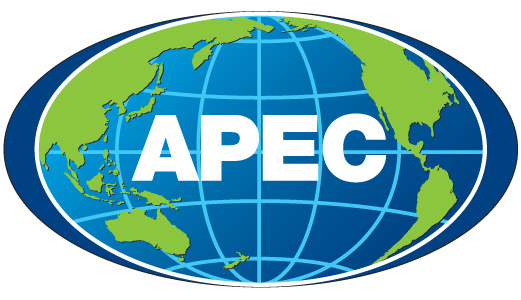
Asia-Pacific Economic Cooperation (APEC) is an international economic organization established for development of integration relations between economies of the Asia-Pacific region. Currently APEC incorporates economies of 21 countries (Australia, Brunei, Vietnam, Hong Kong (special administrative region of the PRC), Canada, Chile, China (PRC), Indonesia, Japan, Korea, Malaysia, Mexico, New Zealand, Papua New Guinea, Peru, Philippines, Russia, Singapore, Taiwan, Thailand, USA)
APEC History
APEC was founded in November 1989. Originally, it included 12 countries - 6 developed countries of the Pacific region (Australia, Canada, New Zealand, USA, South Korea, Japan) and 6 developing countries of the Association of South-East Asia (Brunei, Indonesia, Malaysia, Singapore, Thailand and Philippines).
By 1997, almost all major economies of the Pacific region joined APEC: Hong Kong (1993), China (1993), Mexico (1994), Papua New Guinea (1994), Taiwan (1993), Chile (1995). In 1998, when three new members Russia, Vietnam and Peru joined APEC, it was decided to impose a moratorium on further expansion of the membership. Currently, India, Cambodia, Colombia, Costa Rica, Macau, Mongolia, Pakistan, Panama, Sri Lanka and Ecuador are interested in becoming APEC members.
Activities within APEC, the fundamental principles of which are consensus and voluntariness, until 2021 were built in accordance with the provisions of the Bogor Declaration adopted in 1994, which aims to create a system of free and open trade and investment activity in the region by 2010 for developed economies and by 2020 for developing ones. In 1995, the Osaka Action Agenda was formed, which specified ways to achieve the agreements formulated a year earlier.
In connection with the expiration of the Bogor Goals in November 2021, APEC leaders approved the Action Plan for the implementation of the Putrajaya Development Guidelines for APEC until 2040, which reflects cooperation priorities adjusted to take into account new economic realities, providing for the formation of an "open, dynamic, viable and peaceful community". This task is supposed to be solved on the basis of the principles of consensus and voluntariness, fundamental to APEC when making advisory decisions, with an emphasis on the following areas of work:
- creation of a free, open, fair, non-discriminatory, transparent and predictable trade and investment environment based on rules agreed upon within the WTO, ensuring the functioning of the multilateral trading system and strengthening regional interconnectedness;
- promoting innovation, improving digital infrastructure, accelerating the pace of digital transformation, narrowing digital divide to improve productivity and growth dynamics, as well as the successful participation of citizens and businesses in the interconnected global economy;
- ensuring high-quality economic growth that improves overall well-being, including representatives of micro, small and medium-sized businesses, women and other groups of the population with unrevealed economic potential, inclusive development of human resources, finding answers to a range of environmental challenges, including climate change.






